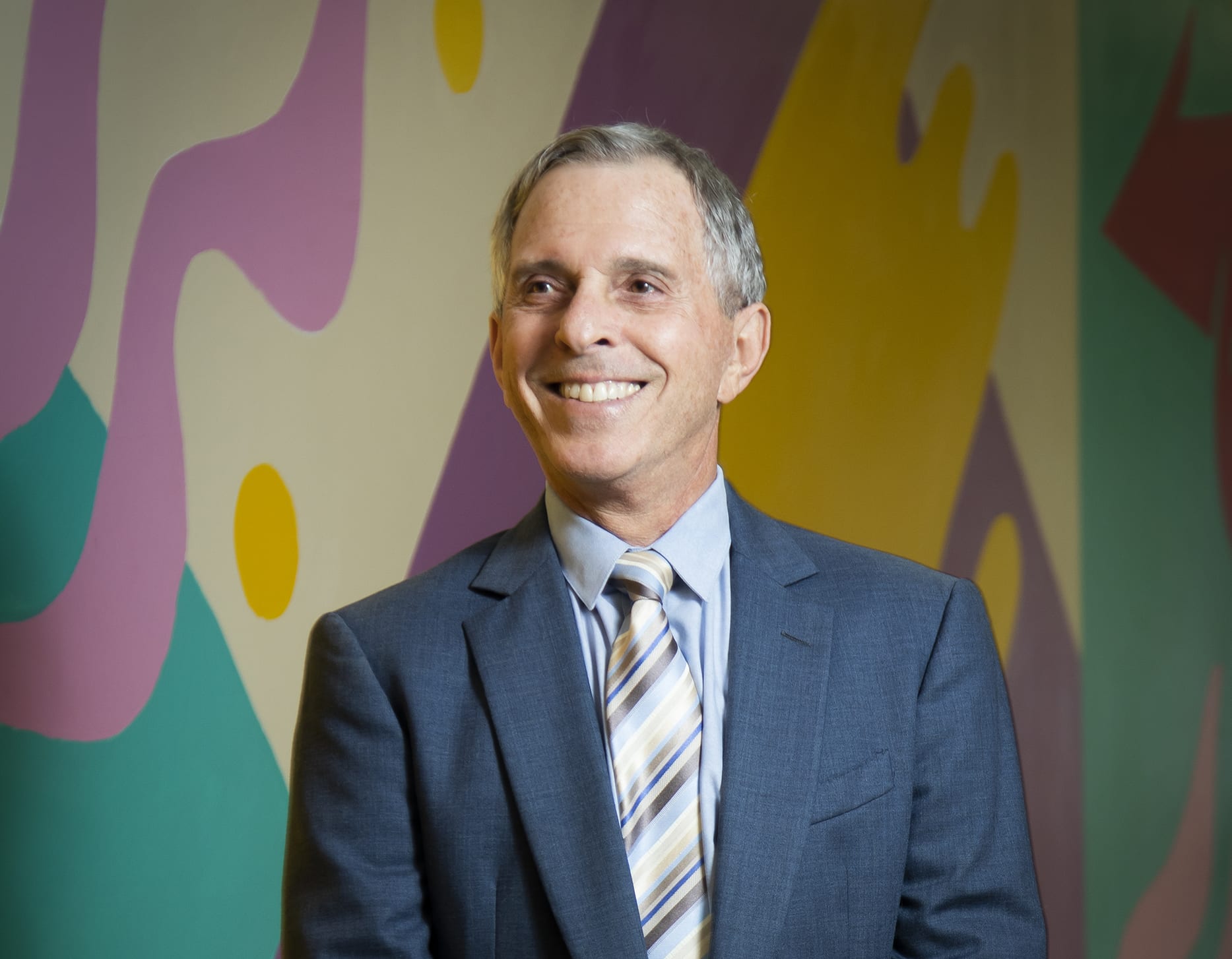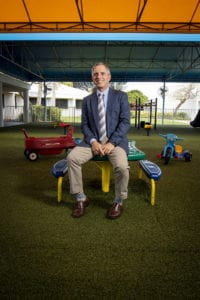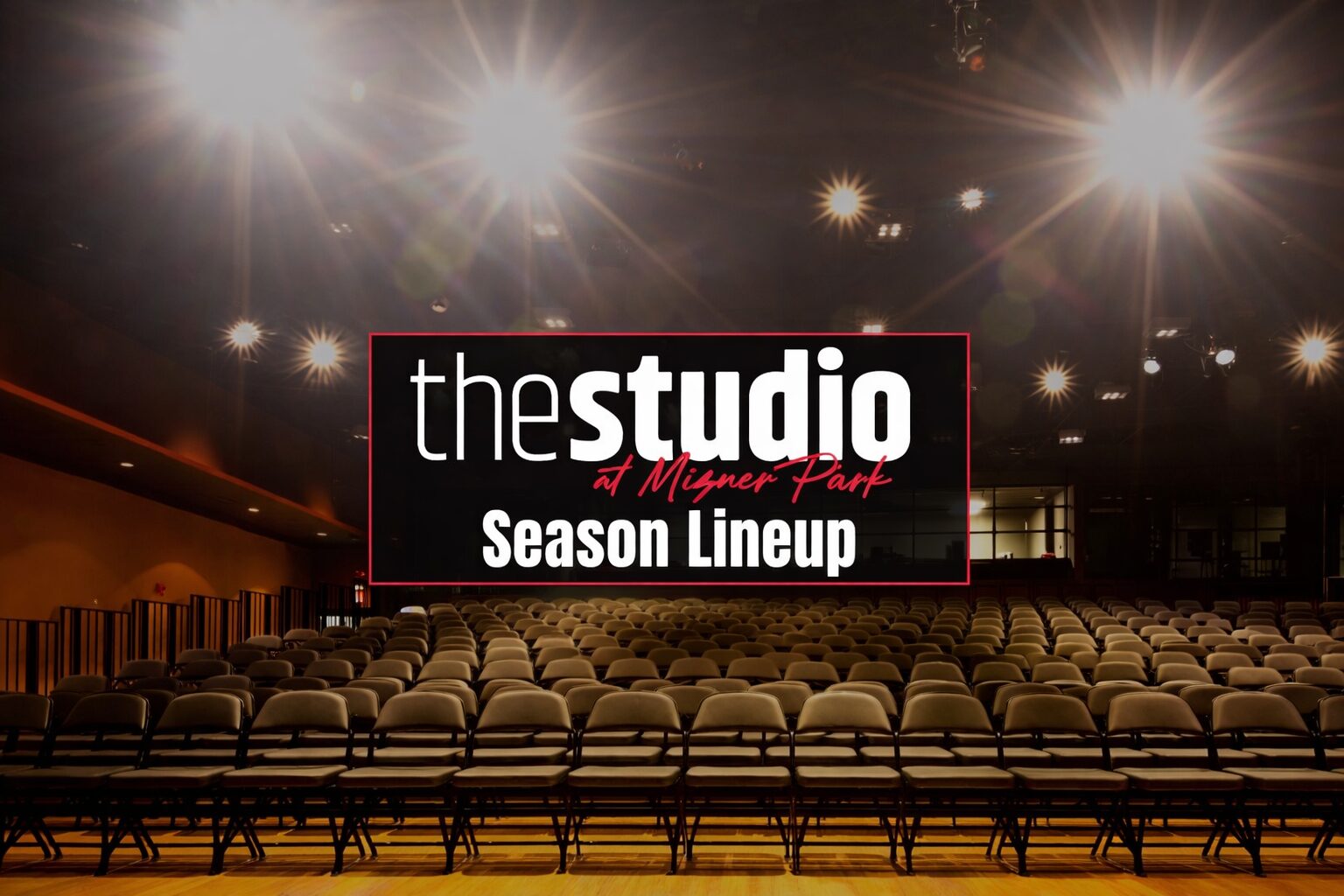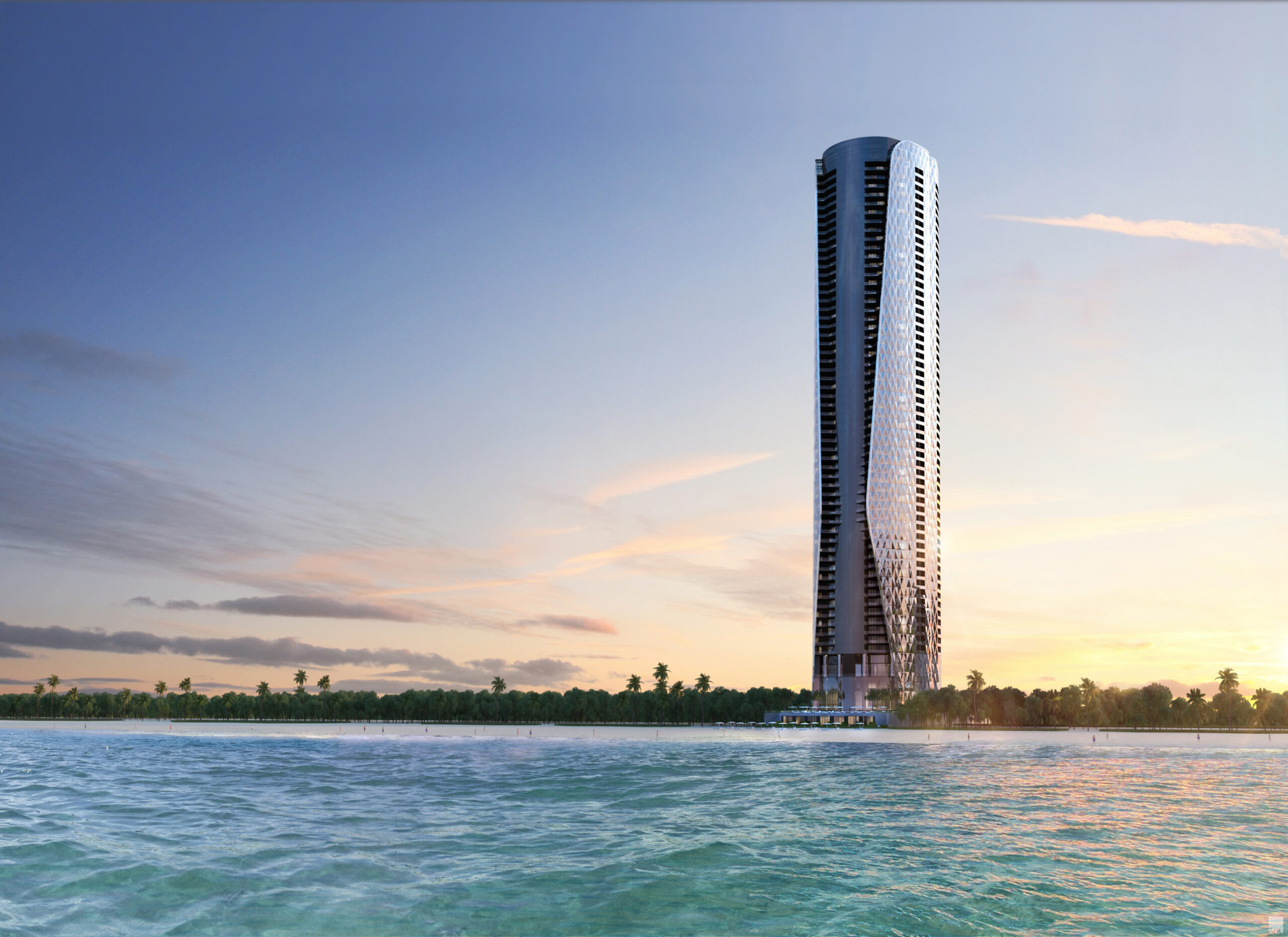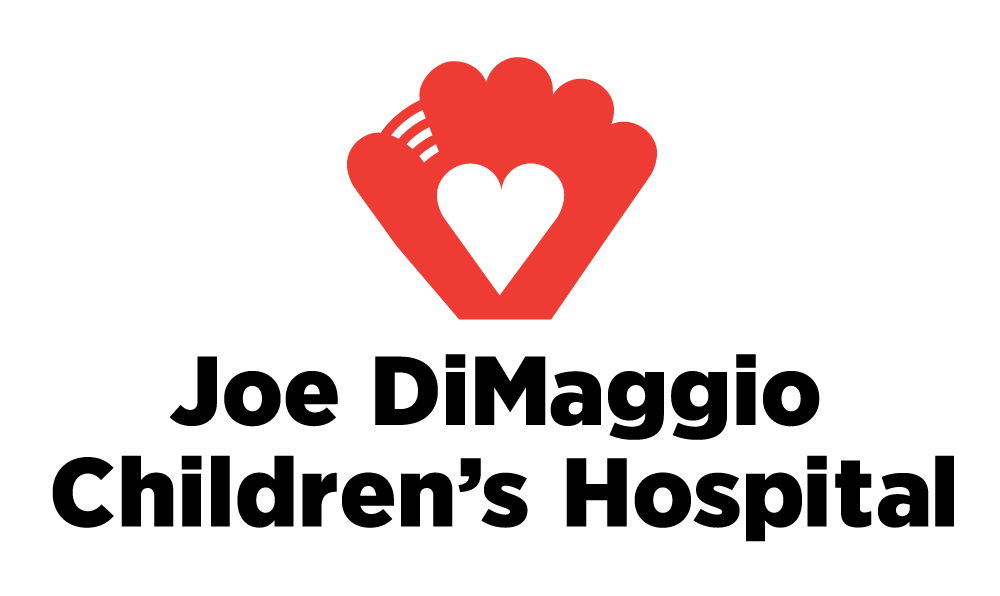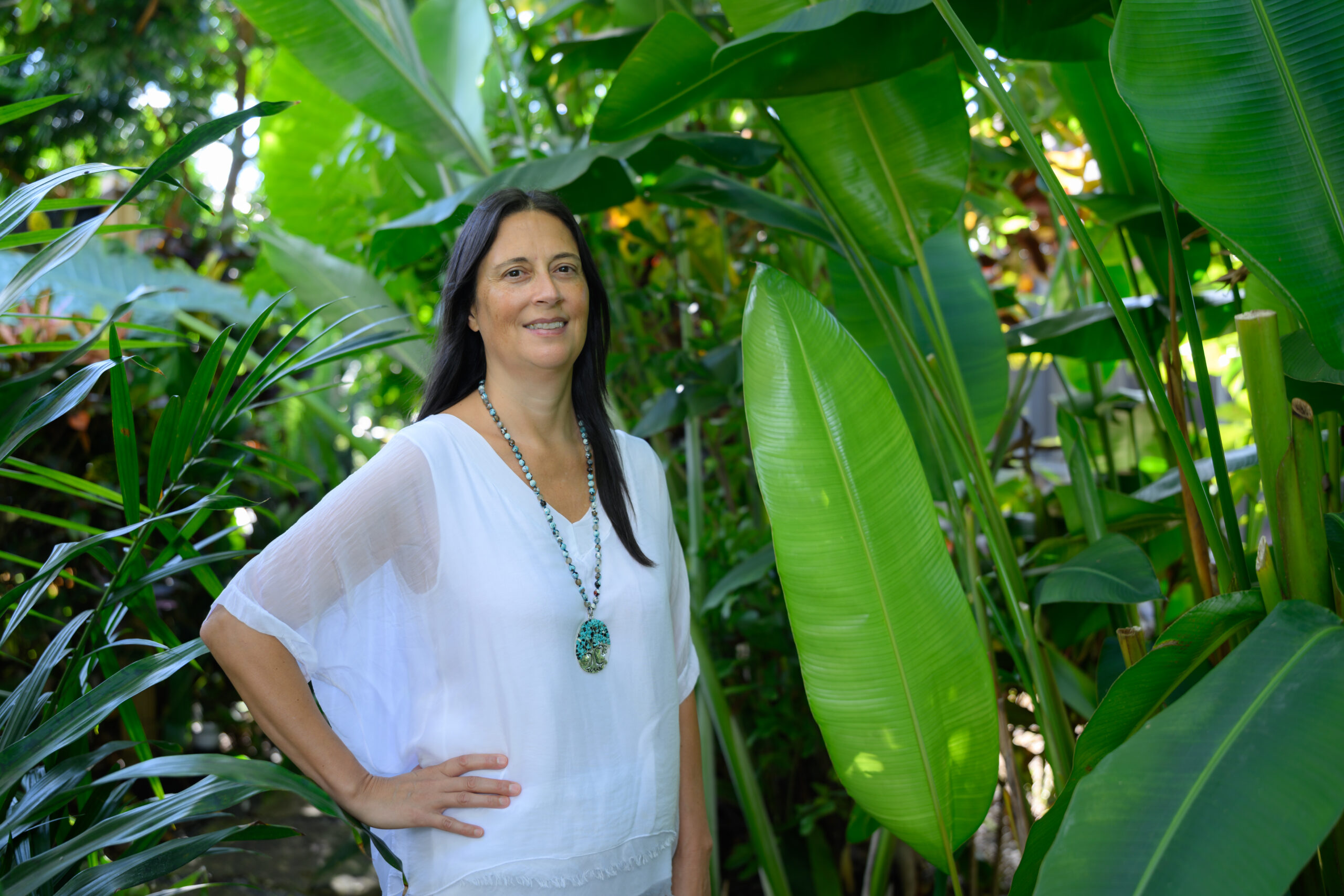Photography by Eduardo Schneider
- We changed the language of our mission several years ago. We used to talk about helping people with disabilities achieve their highest potential. It was about what we were doing for them. But it’s bigger than that. Today, one of the major pieces of our mission is to transform the community—how you and your colleagues and neighbors think about individuals with developmental disabilities.
- I was fortunate to have a wonderful experience practicing law. I was the shareholder in a big firm, then grew my own firm. I was not an unhappy practitioner. But I had a bug to do something entrepreneurial. … It was a kernel of a thought. Until the executive director of Arc Broward retired. [Editor’s note: At that point, Haas had served on Arc Broward’s board of directors since 1983.]
 As a board, we hired someone else, and it didn’t work out. We started another search, and one of my colleagues, almost as a side comment, said, “Maybe Dennis will do it.” At the time, I thought, “What do I know about running an organization like this?” I’d been a board member for 12 years at that point, but I didn’t know the day-to-day guts of the organization. Call it an early midlife crisis. I thought about it over a long weekend and decided to do it.
As a board, we hired someone else, and it didn’t work out. We started another search, and one of my colleagues, almost as a side comment, said, “Maybe Dennis will do it.” At the time, I thought, “What do I know about running an organization like this?” I’d been a board member for 12 years at that point, but I didn’t know the day-to-day guts of the organization. Call it an early midlife crisis. I thought about it over a long weekend and decided to do it.
- My first day as CEO/president [October 1996], I remember thinking, “Oh, my God. What did I do?” Managing 10 to 15 lawyers was a little different than running this entire organization. I went to a bookstore and bought all these management books.
- The complexity of the funding, the level of bureaucracy and red tape involving not only regulatory requirements but all the strings attached to dollars coming from a multitude of places? I had never dealt with it before.
- Our first budget was about $1.5 million. Today, it’s around $17 million.
- The culture also was very different. For the people who work here, it’s almost like a calling. To commit to doing this as a career? It’s challenging at every level. And it’s incredibly rewarding. There are employees at Arc Broward with amazing talents who could be doing other things. The people attracted to this work are so dedicated. That was unexpected—and a pleasant surprise.
- How you speak, how you advocate is important in [the nonprofit sector]. Some of my skills as a lawyer helped me. But there were many times, and still to this day, where I have to remind myself to dial it back. My mind is trained to fire off questions and get the information needed to make a decision, but you have to be careful that you’re not cross-examining people.
- If you think about it, the developmentally disabled community has been one of our recent civil rights movements. There has been huge progress made in the time that I’ve been involved. But, as with any minority population, there are still several hurdles. There are attitudinal challenges, without a doubt. So, you work on it person by person, group by group.
- Our job developers are knocking on doors and trying to convince human resources professionals to hire this individual with a developmental disability. It’s not easy, I don’t care how accepting they are. There’s still that perception that the person will somehow be a problem. But that’s not the reality. Nine out of 10 times, companies are thrilled with the employees we bring to them—because it’s the single most important thing in that person’s life.
- Eighty-five percent of people with developmental disabilities are unemployed. Many of them want to work. Some have families that are supportive but not forever. Some are living in poverty. So, how does that feel? It makes them feel like they have no value in this world. They have no work life, no social life. They’re dependent on everyone. People don’t always realize that the individuals we’re talking about think and feel these things.
- For them to have the ability to go to work, to earn money—to have some sense of independence, self-worth and purpose—it’s priceless.
- It not only changes their lives, but it changes the lives of their families and everyone around them—including the employers and co-workers. We started getting feedback that co-workers really respected and enjoyed working for a company with a social conscience. It’s enriching.
- Here’s the last piece of the employment puzzle. We’ve gone to companies for a meeting, and we’ll see our employees sitting alone in the lunch room. So, we’ve developed a training curriculum for businesses to teach their workers how to interact with the developmentally disabled. We presume people know, but maybe they don’t. I didn’t know at first. Do you talk about the disability with them? Are there [politically correct] words to use?
- You may have trouble understanding someone with a developmental disability, but the individuals that we’re serving—particularly the ones who are working—are much smarter than the general public gives them credit for.
- Every week, I see a young couple arriving here for the first time after finding Arc Broward through whatever means. They’re scared. They’re just learning that their child has some kind of developmental disability or delay. I know what their journey is going to be. It’s going to be hard. You [also] know they’re going to be OK. … We take great pride in the fact that our organization is there to help make [the journey] better.
The Haas File
A graduate of Nova Southeastern University’s Shepard Broad College of Law, Haas worked as an attorney from 1978 to 1996.
Haas represented people with disabilities in the late 1970s/early 1980s while working with Legal Aid Service of Broward.
He was one of several community professionals in the mid-1980s who helped to reshape the Arc Broward board.
Haas has been president/CEO of Arc Broward for nearly 23 years; he oversees a combined 450 employees and volunteers.
About Arc Broward
The myriad programs offered by Arc Broward (21 throughout the county) speaks to its inspired commitment to provide opportunities for people with developmental disabilities and behavioral challenges. Its youth offerings include an Alternative Behavioral Learning Environment afterschool program (and summer camp), as well as early education and therapy preschool services; adults with developmental disabilities have access to a life skills program, adult day services, and residential services (five group homes and a 36-bed intermediate care facility in Davie). Services under the Arc Works umbrella help participants with everything from post-secondary education and obtaining employment to workplace support and financial coaching. The organization’s social enterprises include Arc Culinary, a food-service training certificate program—and a full-blown catering business that’s about to benefit from a new 8,000-square-foot buildout on the Arc Broward campus that will house a catering kitchen, teaching kitchen, cooking and prep areas, and more.



